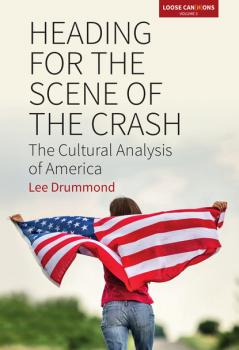ТОП просматриваемых книг сайта:
Биология
Различные книги в жанре Биология, доступные для чтения и скачиванияАннотация
World-wide migration has an unsettling effect on social structures, especially on aging populations and eldercare. This volume investigates how taken-for-granted roles are challenged, intergenerational relationships transformed, economic ties recalibrated, technological innovations utilized, and spiritual relations pursued and desired, and asks what it means to care at a distance and to age abroad. What it does show is that trans-nationalization of care produces unprecedented convergences of people, objects and spaces that challenge our assumptions about the who, how, and where of care.
Информация о книге
Автор произведения Группа авторов
Жанр Биология
Серия Life Course, Culture and Aging: Global Transformations
Аннотация
As globalization and transnational encounters intensify, people’s mobility is increasingly conditioned by intimacy, ranging from love, desire, and sexual liaisons to broader family, kinship, and conjugal matters. This book explores the entanglement of mobility and intimacy in various configurations throughout the world. It argues that rather than being distinct and unrelated phenomena, intimacy-related mobilities constitute variations of cross-border movements shaped by and deeply entwined with issues of gender, kinship, race, and sexuality, as well as local and global powers and border restrictions in a disparate world.
Аннотация
In the accounts compiled in this book, ethnography occurs through processes of material and social interventions that turn the field into a site for epistemic collaboration. Through creative interventions that unfold what we term as “fieldwork devices”—such as coproduced books, the circulation of repurposed data, co-organized events, authorization protocols, relational frictions, and social rhythms—anthropologists engage with their counterparts in the field in the construction of joint anthropological problematizations. In these situations, the traditional tropes of the fieldwork encounter (i.e. immersion and distance) give way to a narrative of intervention, where the aesthetics of collaboration in the production of knowledge substitutes or intermingles with participant observation. Building on this, the book proposes the concept of “experimental collaborations” to describe and conceptualize this distinctive ethnographic modality.
Аннотация
The contribution of Southeast Asia to the world economy (during the late prehistoric and early historic periods) has not received much attention. It has often been viewed as a region of peripheral entrepôts, especially in the early centuries of the current era. Recent archaeological evidence revealed the existence of established and productive polities in Southeast Asia in the early parts of the historic period and earlier. This book recalibrates these interactions of Southeast Asia with other parts of the world economy, and gives the region its due instead of treating it as little more than of marginal interest.
Аннотация
There is a World Heritage Craze in China. China claims to have the longest continuous civilization in the world and is seeking recognition from UNESCO. This book explores three dimensions of the UNESCO World Heritage initiative with particular relevance for China: the universal agenda, the national practices, and the local responses. With a sociological lens, this book offers comprehensive insights into World Heritage, as well as China’s deep social, cultural, and political structures.
Аннотация
Exploring the lifeworlds of Halima, Omar and Mohamed, three middle-aged Somalis living in Melbourne, Australia, the author discusses the interrelated meanings of emplacement and displacement as experienced in people’s everyday lives. Through their experiences of displacement and placemaking, Being-Here examines the figure of the refugee as a metaphor for societal alienation and estrangement, and moves anthropological theory towards a new understanding of the crucial existential links between Sein (Being) and Da (Here).
Аннотация
American anthropologists have long advocated cultural anthropology as a tool for cultural critique, yet seldom has that approach been employed in discussions of major events and cultural productions that impact the lives of tens of millions of Americans. This collection of essays aims to refashion cultural analysis into a hard-edged tool for the study of American society and culture, addressing topics including the 9/11 terrorist attacks, abortion, sports doping, and the Jonestown massacre-suicides. Grounded in the thought of Friedrich Nietzsche, the essays advance an inquiry into the nature of culture in American society.
Аннотация
Using the economic crisis as a starting point, Messy Europe offers a critical new look at the issues of race, gender, and national understandings of self and other in contemporary Europe. It highlights and challenges historical associations of Europe with whiteness and modern civilization, and asks how these associations are re-envisioned, re-inscribed, or contested in an era characterized by crises of different kinds. This important collection provides a nuanced exploration of how racialized identities in various European regions are played out in the crisis context, and asks what work “crisis talk” does, considering how it motivates public feelings and shapes bodies, boundaries and communities.
Аннотация
Since the turn of the century Singapore has sustained a reputation for both austere governance and cutting-edge biomedical facilities and research. Seeking to emphasize Singapore’s capacity for “modern medicine” and strengthen their burgeoning biopharmaceutical industry, this image has explicitly excluded Chinese medicine – despite its tremendous popularity amongst Singaporeans from all walks of life, and particularly amongst Singapore’s ethnic Chinese majority. This book examines the use and practice of Chinese medicine in Singapore, especially in everyday life, and contributes to anthropological debates regarding the post-colonial intersection of knowledge, identity, and governmentality, and to transnational studies of Chinese medicine as a permeable, plural, and fluid practice.
Аннотация
The origins of anthropology lie in expeditionary journeys. But since the rise of immersive fieldwork, usually by a sole investigator, the older tradition of team-based social research has been largely eclipsed. Expeditionary Anthropology argues that expeditions have much to tell us about anthropologists and the people they studied. The book charts the diversity of anthropological expeditions and analyzes the often passionate arguments they provoked. Drawing on recent developments in gender studies, indigenous studies, and the history of science, the book argues that even today, the ‘science of man’ is deeply inscribed by its connections with expeditionary travel.










